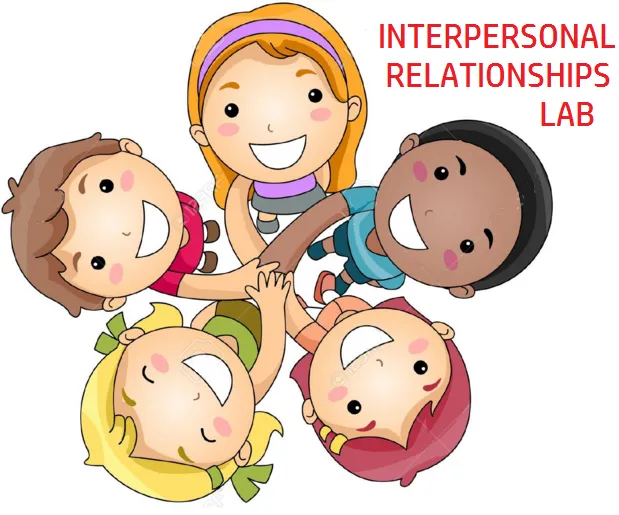The Conflicts Between Intergroups and Interpersonal Relationships

Image Source
Individuals need to have remunerating relationships, and most need to determine contradictions fairly. These motives are now and then traded off by the contending motive to keep up self-trustworthiness. Since our social worth influences our sense of self-worth, individuals might be particularly delicate to see dangers in their relationships.
This powerlessness can cause an unsafe defensive style. Affirmation interventions can facilitate this defensiveness and put the relationship on a superior course. Undoubtedly, affirmations have been appeared to decrease defensive behavior in interpersonal and intergroup experiences and to advance put stock in, trade off, and closeness.
At the point when individuals are affirmed in esteemed domains disconnected to a question, they are more open to generally personality, debilitating political data and less tenacious in negotiations. Among individuals in Israel and Bosnia, generally conflict-ridden ranges, selfaffirmed participants will probably recognize wrongdoings exacted by their group on the opposite side and to help reparations to those hurt.
Affirmation can decrease the acceleration of responsibility frequently see as partisans' personality winds up plainly bound to the positions they advocate. Whenever affirmed, individuals are less inclined to disparage concessions offered by enemies in a negotiation. In a negotiation over abortion rights, participants whose sense of duty regarding their political views had been made striking demonstrated receptive to affirmation. Whenever affirmed, they made more bargains in a negotiation over abortion enactment, and they exited the negotiation with more grounded trust of the supporter on the opposite side of the issue.
Affirmation appears to give consolation that a social or political personality, one that would some way or another fix individuals' assessments and negotiation positions, is however one of numerous esteemed characters. In conflicts where descending spirals of allegation and counteraccusation can slide into animosity, the enhanced trust and liberality realized by affirmation holds guarantee for enhanced relations.

Image Source
Relationships are so recursive and dynamic, thus interweaved with our sense of self and prosperity, that selfaffirmation interventions could have any kind of effect in relational issues. One of the most grounded indicators of marital distress is defensiveness. In contentions, despondent couples frequently sink into a soil of equal striking back. Every individual's defensiveness brings out a reaction in kind from the other, a descending spiral of one good turn deserves another that is not just scientifically unsurprising, reliable with a recursive cycle, yet in addition prescient of early divorce.
By differentiate, glad couples appear to get away from these recursive cycles by repelling with an astonishing snapshot of affirmation, an incapacitating compliment, a confirmation of respect, a touch of shared cleverness. To be sure, this pattern of incapacitating affirmation demonstrated among the most grounded indicators of marital stability and happiness. Such affirming motions appear to be particularly valuable for individuals who feel shaky in their relationships. Observational examinations in this manner recommend that diminishing risk can reduce defensiveness and enable couples to determine contradictions valuably.
Be that as it may, would one be able to tentatively present such a turning point in a relationship?
Despite the fact that the body of research is not yet as voluminous as in education and health, thinks about recommend that the appropriate response is yes. In one examination, a standard affirmation decreased the defensive distancing strategies that low selfesteem individuals in long haul relationships use to control the danger of losing the warmth of their partner. After a standard relationship danger enlistment, affirmed low selfesteem participants demonstrated less prone to discredit their partner and to mull over relationship, disrupting behaviors, for example, beginning contentions.
Relational insecurity can likewise lead individuals to receive a far off however self-defensive social attitude, which can inspire dismissal from others, developing insecurity, in a self-satisfying prescience of social dismissal. This negative spiral can be intruded, and a positive direction cultivated, through values affirmation. Whenever affirmed, relationally uncertain participants not just felt more certain about the respect of their family and romantic partners, yet in addition carried on without any difficulty and inspiration in a collaboration with an outsider half a month later.

Image Source
Little positive shifts in how individuals understand their relationships can collect into persisting changes in the accounts individuals create about themselves and their relationships. These thusly can advance hotter relationships, give assist affirmation, and trigger a cycle of versatile potential that could have expansive consequences for trust, prosperity, and health. Such shifts may empower couples to break free of descending cycles. Such recursive conceivable outcomes got bolster in a progression of concentrates that tried a novel intercession.
It planned to urge low selfesteem participants to draw selfaffirming implications that, usually, appear to evade them. Understudies in romantic relationships were told to think about a period when their partner complimented them and, in an unobtrusively possible incite, clarify why your partner appreciated you, what it intended to you and its importance for your relationship. With respect to different control conditions, including one that requested that participants just review the compliment, the mediation drove low selfesteem participants to feel more secure both in their relationship and about themselves.
They were more certain about their partner's love for them, more hopeful about the eventual fate of their relationship, and communicated a more positive sense of personal worth. The intercession's impact on relationship security and quality held on two weeks after the fact. It likewise appeared to trigger a shift in the real quality of participants' relationships. Toward the finish of two weeks, affirmed participants announced that their partners had acted all the more obligingly and less basically toward them. There was likewise some proof that their partners considered them to be less cruel and basic.

Image Source
